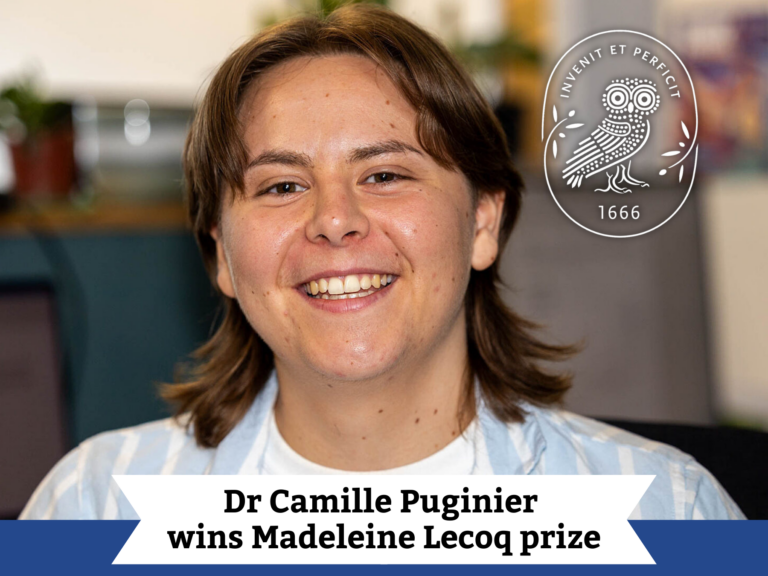HP3 vision is aligned with UK plant science strategy
New strategy for plant sciences calls for investment in world-class HP3 infrastructure

Plant science research has a crucial role to play in safeguarding the future of our planet. Investment is essential and urgent to meet the expectations of both society and government, says a new independent strategy published this week.
The UK plant science research strategy: a green roadmap for the next 10 years, published by the BBSRC, outlines clear goals for research and innovation involving plants over the next ten years.
It emphasises the unique role that plant science research has to play in safeguarding the future of our planet, and in addressing a range of global challenges – including tackling climate change, ensuring a sustainable food supply and protecting biodiversity.
Authored by Professor Jane Langdale CBE FRS of the University of Oxford, the strategy follows extensive consultation with members of the research and innovation community.
The resulting strategy says:
“...increased societal awareness now needs to be harnessed to ensure that current and future generations understand, value and support a strategy that firmly embeds plant science R&D into the broader UK science and innovation landscape.”
It goes on to identify priorities for increased investment and better co-ordination across the UK – with infrastructure listed as one of six priority areas. It highlights that in order to deliver gains around innovation and world class research and development, our national approach needs to be underpinned by infrastructure investment in research institutes and universities.
The Healthy Plants Healthy People Healthy Planet (HP3) vision is highlighted as the sort of specialised hub that should receive investment in order to provide world-class national capabilities.
HP3 aims to create the world’s leading plant and microbial science hub. It is a collaboration between the John Innes Centre and The Sainsbury Laboratory and is supported by BBSRC, part of UK Research and Innovation.
By opening the new facilities and field research capabilities to other organisations, the investment will not just realise a step-change for the John Innes Centre and The Sainsbury Laboratory, but will expand the UK’s capacity to make the most impactful discoveries in plant and microbial science.
Such a fundamental shift in the UK scientific community’s ability to turn its innovation and creativity into solutions will underpin the way the world eats and protects human health for the next century and beyond.
Professor Dale Sanders FRS, Director of the John Innes Centre said:
“I am delighted to see this constructive strategy published, which embeds pioneering plant science at the heart of the UK science and innovation landscape. The strategy is welcome and long-awaited and will be indispensable in guiding the research community as it seeks to address the global challenges that lie ahead.
The plant science research strategy recognises real investment opportunities in Norwich by highlighting the critical role HP3 will play route in successfully delivering the strategy and ensuring a world-class research base. By developing a UK hub for plant and microbial science, we will provide a national resource, helping to accelerate progress in tackling these major global challenges.”
Professor Nick Talbot FRS, Executive Director of The Sainsbury Laboratory said:
“This strategy document sets out an important roadmap for UK plant sciences. Community-driven and expertly led by Professor Langdale, the strategy highlights the extraordinary potential of plant sciences to address the world's most serious challenges, such as sustainably assuring global food security in the face of the climate emergency.”
Writing in the foreword to the strategy Professor Langdale said:
“Whether fundamental or translational, or both combined in a strategic programme, plant science research has a crucial role to play in safeguarding the future of our planet. To meet the expectations of both society and government, investment in the implementation of this strategy is essential and urgent.”
Welcoming the publication of the strategy, Professor Melanie Welham, Executive Chair of the Biotechnology and Biological Sciences Research Council added:
“Healthy plants, including crops and trees, are vital for our future and are central to our food supplies, environment, economy and social wellbeing. The UK’s plant science research base has great strengths in discovery research and innovation. By working collectively there are real opportunities to advance knowledge across the areas highlighted in the strategy, helping create a vibrant bioeconomy, supporting growth and jobs.”
In Spring 2021, the BBSRC plan to bring together interested stakeholders to discuss the review findings more widely. You can read more on the BBSRC’s website Ten-year roadmap to guide UK plant science – UKRI


